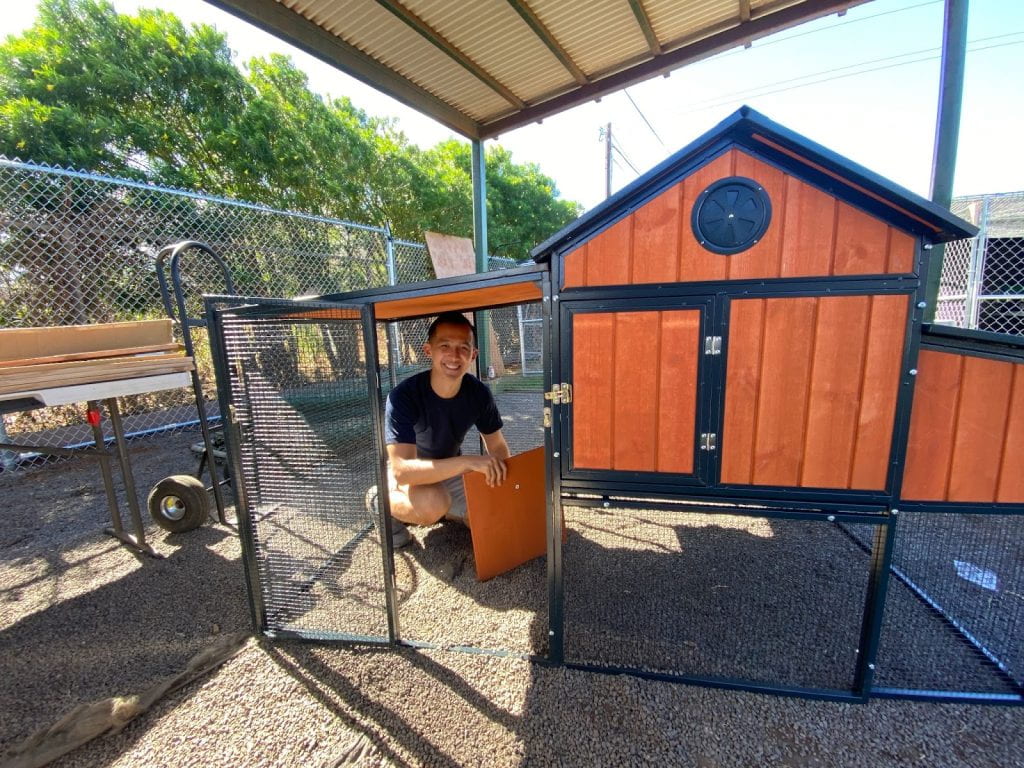The collaborative nature of the CHPP’s work is essential to how the team delivers service. The work we do can’t be delivered without connection and participation from community experts, including social workers, clinical veterinarians, and the communities we are serving.
The CHPP team provides both wellness and spay/neuter services to several made-vulnerable communities across Ontario.
Community Medicine
We work alongside community organizations to provide veterinary care to individuals and families experiencing housing-insecurity or homelessness. Pet owners who work with community health and social service teams are referred into our program for care.

Our team aims to provide week-long veterinary clinics on-location at least fourtimes per year. We support ongoing care as needed via telemedicine and clinical partnerships in between these clinics as needed. We currently serve the following geographic areas:
- Guelph
- Cambridge/Kitchener/Waterloo
- Hamilton/Burlington/Brantford
- Dufferin and Wellington County
We are proud to work alongside several community organizations across the region.
First Nations in Ontario
The CHPP team currently works alongside 5 First Nations communities across Ontario providing both wellness and surgical care on location in community. We operate a fully stocked veterinary MASH unit, and are hosted within each community at a central location of their choosing for the duration of our clinics.
Veterinary Clinical Collaborations
In order to provide ongoing care for animals in our partnered communities when we are not in their area, we rely on the support of local animal hospitals across Ontario. The CHPP is a proud steward of Remy’s Fund, a program of OVC Pet Trust, was created to provide subsidies to qualified pet owners to assist with the cost of veterinary treatment, including participants in CHPP, and create equitable ways to improve access to care. The fund is named in memory of benefactors Kim and Stu Lang’s beloved dog Remy, a yellow Labrador Retriever they rescued and who received life-saving care at the OVC.
Shelter Medicine
One of the Community Healthcare Partnership Program’s (CHPP) primary areas of service and teaching is shelter medicine. CHPP launched the first clinical residency in shelter medicine in Canada to provide a three-year advanced training program for licensed veterinarians interested in shelter medicine practice.

Dr. Wesley Cheung, BVSc is CHPP’s first clinical resident shelter medicine.
The goal of CHPP’s shelter medicine residency is to create and promote specialists that can serve as practitioners, educators, researchers and shelter consultants in Canada. These specialists are experts in designing and overseeing comprehensive programs that support sheltered animals and those belonging to pet owners in need. Ultimately, this will help increase shelter lifesaving, promote public health, elevate animal welfare, and provide better service to animals and owners made vulnerable.
Meeting the unique needs to sheltered animals
Under the mentorship of two board-certified shelter medicine specialists, Dr. Emilia Gordon and Dr. Alexandre Ellis, residents gain advanced skills and knowledge in all aspects of shelter medicine to meet the unique needs for the care of unhoused animals. This includes population-level infectious disease management, individual-level clinical medicine and surgery, public health, shelter operations, high-quality and high-volume spay/neuter surgery, community outreach, cruelty investigations, forensics and disaster response.
A new veterinary specialty
While veterinarians in private practice primarily concentrate their efforts on individual animals and their owners, shelter veterinarians focus on individual animal care as well as population health. Shelter veterinarians face obstacles unique to unhoused animals – variable health statuses and histories of the animals in their care, higher risk of infectious disease and challenging behaviour scenarios. Directing care also often involves a team-based approach requiring shelter veterinarians to be excellent communicators with the ability to manage projects and foresee future obstacles and solutions.
Shelter medicine practice was formally recognized by the American Veterinary Medical Association as the newest veterinary specialty in 2014.
Animal Sheltering Organizations
We also work alongside a number of animal sheltering organizations across Ontario, both as community medicine service partners and as experiential learning partners for Doctor of Veterinary Medicine (DVM) students. They are:



